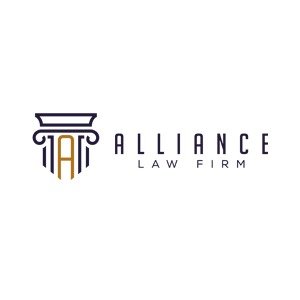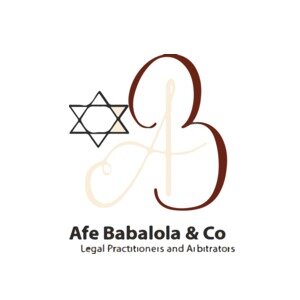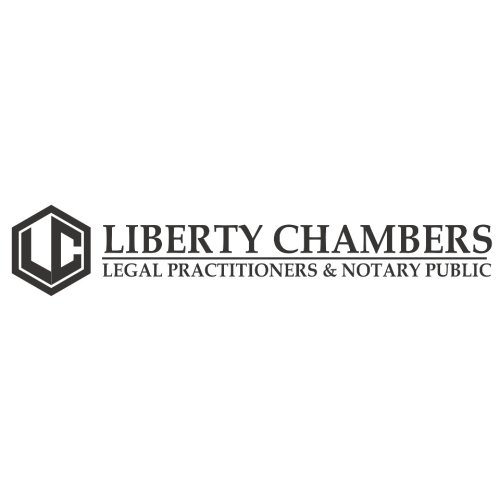Best Business Lawyers in Port Harcourt
Share your needs with us, get contacted by law firms.
Free. Takes 2 min.
List of the best lawyers in Port Harcourt, Nigeria
Nigeria Business Legal Questions answered by Lawyers
Browse our 5 legal questions about Business in Nigeria and read the lawyer answers, or ask your own questions for free.
- As a foreigner in private employ, is it unlawful to equally run my private business on the side?
- I hold a top management position in a multinational company but under immigration law, I am told it's unlawful to equally run my private company which is not the same business as where I work
-
Lawyer answer by Tents & Towers-Barristers and Solicitors
Your ability to run a business while in private employment as a foreigner depends on some factors, one of which is your contract of employment with your current employer. We would like to look at that contract together with the...
Read full answer - Timeline, Requirements, and Costs for Company Registration with the CAC
- How long will it take to get my company registered with the CAC, and what are the necessary requirements and costs?
-
Lawyer answer by GAVEL & GREY LEGAL PRACTITIONERS
The duration takes between 7-28 days. And as for requirement, it varies depending on the type of company you seek to register. the fees is usually determined by the share capital you seek to register your company with. for more...
Read full answer - I want to start upa disatch rider company i. Enugu. Courier a d logistics. Company
- What are the necessary law requirement and licensing to set up a dispatch rider business within Rnugu State
-
Lawyer answer by Highlaw Chambers
To establish a dispatch rider business in Enugu State, several key legal requirements must be met. Firstly, you need to register your business with the Corporate Affairs Commission (CAC) and obtain a Business Name Registration. Additionally, you will need to...
Read full answer
Nigeria Business Legal Articles
Browse our 6 legal articles about Business in Nigeria written by expert lawyers.
- The Step-By-Step Procedure of How to Apply for Microfinance Bank License Online in Nigeria
- The Central Bank of Nigeria (CBN) has launched a new online platform for submitting microfinance bank (MFB) license applications, known as the CBN Licensing, Approval, and Other Requests Portal. The new online platform replaces the previous laborious approach of physically submitting MFB license applications to the CBN. These are the... Read more →
- How to Ensure the Smooth Recognition and Enforcement of Foreign Judgments in Nigeria
- Recognition and enforcement of foreign judgments refer to the legal process of acknowledging and enforcing court decisions made in a different country. This aspect of the legal system is essential for maintaining the integrity of international law and ensuring justice is upheld across borders.When it comes to the enforcement of... Read more →
- The Use of Drones for Commercial Purposes and Privacy Rights of Others
- In the field of innovative technology, drones are used in different spheres of human activities. Drones can be used to handle complex jobs, offer security, conduct surveillance, and collect information. However, the employment of drones can pose challenges from the point of standpoint of human rights and privacy, which raises... Read more →
About Business Law in Port Harcourt, Nigeria
Port Harcourt, a vibrant city in Nigeria, is a key commercial hub in the South-South region of the country. It is well-known for its oil and gas industry, which attracts both local and international businesses. The city also boasts a burgeoning array of other sectors including real estate, manufacturing, and agriculture. Business law in Port Harcourt covers a wide range of legal areas including company formation, taxation, labor law, and intellectual property, providing a framework that facilitates and regulates business operations within this dynamic environment.
Why You May Need a Lawyer
Navigating the complexities of business law can be challenging, particularly in a bustling city like Port Harcourt. There are numerous situations where seeking legal assistance can be beneficial:
- Business Formation: To ensure compliance with regulatory requirements when starting a new business.
- Contracts: Drafting and reviewing contracts to protect your business interests.
- Dispute Resolution: Handling disagreements with partners, employees, or other businesses.
- Intellectual Property: Protecting your business's intellectual assets.
- Regulatory Compliance: Navigating the myriad regulations governing business operations.
- Taxation: Understanding and complying with local tax laws.
- Employment Law: Managing employment contracts and disputes.
- Mergers and Acquisitions: Legal guidance during business expansion or consolidation.
- Corporate Governance: Ensuring best practices in company management and policy.
- Bankruptcy and Insolvency: Legal advice in the event of financial distress.
Local Laws Overview
Business operations in Port Harcourt are subject to both federal and state laws. Key aspects of local business laws include:
- Companies and Allied Matters Act (CAMA): This federal law governs the registration, operation, and dissolution of companies in Nigeria.
- Tax Laws: Businesses must comply with both federal and Rivers State tax regulations, including income tax and Value Added Tax (VAT).
- Labor Laws: The Nigerian Labor Act outlines the rights and obligations of employers and employees.
- Environmental Regulations: Businesses, especially in the oil sector, must adhere to environmental laws to prevent environmental degradation.
- Intellectual Property Law: Protects trademarks, patents, and copyrights at both the national and state level.
Frequently Asked Questions
What is necessary to start a business in Port Harcourt?
To start a business, you need to register with the Corporate Affairs Commission (CAC), obtain necessary permits and licenses, and comply with relevant regulations.
How do I register my business in Port Harcourt?
Business registration is done through the Corporate Affairs Commission (CAC). You can complete this process online or visit their local office.
What taxes are applicable to businesses in Port Harcourt?
Businesses may be subject to company income tax, value-added tax, withholding tax, and personal income tax for employees, among others.
How can I protect my business's intellectual property?
Intellectual property can be protected by registering trademarks, patents, and copyrights with relevant agencies such as the Nigerian Copyright Commission.
What are the employment laws I need to be aware of?
Nigeria's Labor Act sets out employment regulations, including worker rights, contract terms, and dispute resolution mechanisms.
How can I resolve a business dispute?
Disputes can be resolved through negotiation, mediation, arbitration, or legal proceedings, depending on the nature and complexity of the issue.
What are the environmental compliance regulations for businesses?
Businesses must comply with the regulations set by the National Environmental Standards and Regulations Enforcement Agency (NESREA) and other local laws to prevent environmental harm.
What should be included in a business contract?
A business contract should include clear terms regarding the scope of work, payment terms, liability, deliverables, and dispute resolution procedures.
Are there incentives for businesses in Port Harcourt?
The government offers various incentives including tax breaks and grants especially for sectors like agriculture and manufacturing.
What legal structure is best for my business?
The ideal legal structure depends on your business goals, liability concerns, and tax implications. Common structures include sole proprietorships, partnerships, and limited liability companies (LLCs).
Additional Resources
Here are some helpful resources for business legal guidance in Port Harcourt:
- Corporate Affairs Commission (CAC)
- Nigerian Investment Promotion Commission (NIPC)
- Rivers State Internal Revenue Service
- Nigeria Copyright Commission
- National Environmental Standards and Regulations Enforcement Agency (NESREA)
- Port Harcourt Chamber of Commerce
Next Steps
If you need legal assistance in business, consider the following steps:
- Identify the area of law where you need help, such as contracts, taxation, or environmental compliance.
- Consult with a qualified business lawyer who is familiar with local laws and regulations.
- Gather all relevant documents and information related to your legal issue.
- Discuss your concerns and objectives with your lawyer to devise a strategy.
- Follow legal advice and adhere to recommended policies and practices to safeguard your business.
Lawzana helps you find the best lawyers and law firms in Port Harcourt through a curated and pre-screened list of qualified legal professionals. Our platform offers rankings and detailed profiles of attorneys and law firms, allowing you to compare based on practice areas, including Business, experience, and client feedback.
Each profile includes a description of the firm's areas of practice, client reviews, team members and partners, year of establishment, spoken languages, office locations, contact information, social media presence, and any published articles or resources. Most firms on our platform speak English and are experienced in both local and international legal matters.
Get a quote from top-rated law firms in Port Harcourt, Nigeria — quickly, securely, and without unnecessary hassle.
Disclaimer:
The information provided on this page is for general informational purposes only and does not constitute legal advice. While we strive to ensure the accuracy and relevance of the content, legal information may change over time, and interpretations of the law can vary. You should always consult with a qualified legal professional for advice specific to your situation.
We disclaim all liability for actions taken or not taken based on the content of this page. If you believe any information is incorrect or outdated, please contact us, and we will review and update it where appropriate.
Browse business law firms by service in Port Harcourt, Nigeria
Port Harcourt, Nigeria Attorneys in related practice areas.

















